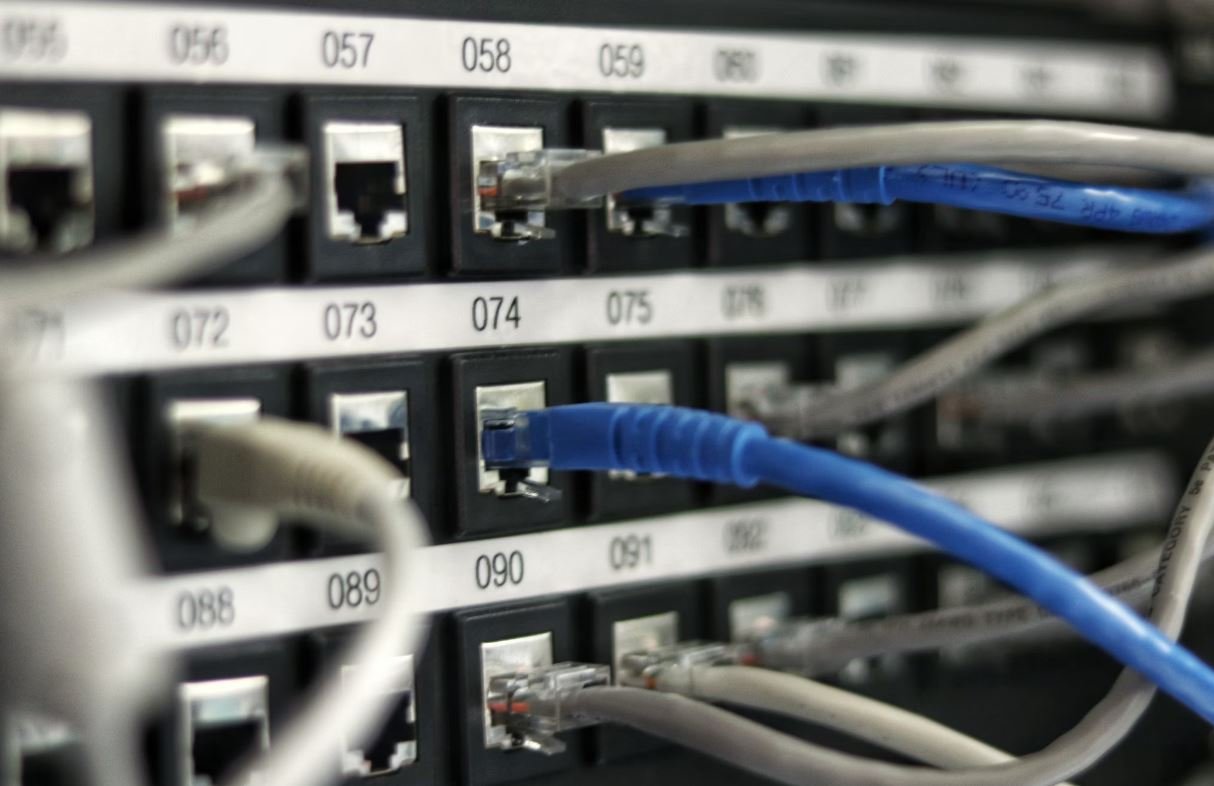AI for Education
Artificial Intelligence (AI) is revolutionizing various industries and education is no exception. With the adoption of AI technologies, the way students learn, teachers teach, and educational institutions operate is undergoing a remarkable transformation.
Key Takeaways
- AI is transforming the education sector, enhancing teaching and learning processes.
- AI-powered tools improve personalized learning experiences for students.
- Teachers can benefit from AI by automating administrative tasks and accessing data-driven insights.
AI technologies, such as machine learning and natural language processing, are being applied in educational settings to provide innovative solutions that cater to individual student needs. **By leveraging AI, personalized learning experiences** can be created, allowing students to learn at their own pace and focus on areas where they need improvement.
| Benefit | Description |
|---|---|
| Enhanced Assessment | AI-powered assessment tools can provide immediate and accurate feedback to students, enabling them to track their progress effectively. |
| Intelligent Tutoring | AI tutors use adaptive technologies to identify student knowledge gaps, provide personalized instruction, and offer tailored feedback. |
Moreover, AI can assist teachers in various ways. **By automating time-consuming administrative tasks**, such as grading papers or managing attendance records, teachers can have more time to focus on instructional planning and individual student support. Additionally, AI tools can analyze vast amounts of data to generate **data-driven insights**, helping teachers identify struggling students, determine effective teaching strategies, and make informed decisions.
*AI can transform the role of teachers from traditional lecturers to facilitators of learning, offering students a more interactive and engaging educational experience.*
| Application | Description |
|---|---|
| Automated Grading | AI can automatically evaluate and provide feedback on assignments, saving teachers valuable time. |
| Intelligent Content Creation | AI tools can generate educational content, such as quizzes or study materials, tailored to students’ learning needs. |
Institutions can also benefit from AI in various ways. By analyzing large datasets, AI can help administrators make data-driven decisions regarding **resource allocation** or **curriculum design**. AI-powered systems can also enhance campus security by detecting anomalies and identifying potential risks.
| AI Application | Description |
|---|---|
| Student Retention | AI algorithms can analyze student data to identify early signs of potential dropouts and prompt interventions for improved retention rates. |
| Campus Safety | AI-powered surveillance systems can detect abnormal behavior or potential threats, enhancing campus security measures. |
With the continuous advancements in AI, the potential for enhancing education is vast. *As AI continues to evolve, we can expect more innovation, increased personalization, and improved educational outcomes.*

Common Misconceptions
When it comes to AI for Education, there are several common misconceptions that people often have. These misconceptions can often lead to misunderstandings and prevent the realization of the true potential of AI in education. Here, we will address some of the most prevalent misconceptions and provide insights to dispel them.
1. AI will replace teachers
- AI can assist teachers, but it cannot entirely replace them.
- Teachers play a critical role in providing emotional support and personalized guidance.
- AI can complement teachers by automating administrative tasks and providing personalized learning experiences.
Some people believe that with the advancement of AI, teachers will become obsolete. However, this is not the case. While AI can assist in various ways, such as grading and content delivery, teachers bring unique skills that cannot be replicated by AI. Emotional support, personalized guidance, and adaptability to individual student needs are all crucial aspects of education that require human interaction.
2. AI will lead to educational inequality
- AI can be used to bridge educational gaps and provide personalized learning experiences to all students.
- Proper implementation and access to AI technology are crucial to ensure equal opportunities for all students.
- Educators and policymakers need to actively work towards minimizing inequality and providing inclusive access to AI resources.
Some individuals worry that AI will widen the educational gap between privileged and disadvantaged students. However, if AI is properly implemented and accessible to all, it has the potential to bridge these gaps. Personalized learning experiences, adaptive assessments, and targeted interventions can help cater to individual student needs, creating a more inclusive and equitable educational environment.
3. AI will make education impersonal
- AI can adapt and personalize educational experiences to cater to individual student needs.
- Through AI, students can receive immediate feedback and guidance tailored to their learning style.
- Teachers can leverage AI to spend more time interacting with students and providing individualized instruction.
Another common misconception is that AI will make education impersonal. However, AI has the potential to make education more personalized and tailored to each student’s needs. Intelligent tutoring systems can provide immediate feedback and adaptive learning experiences, adapting the content and pace to suit individual learning styles. With AI handling administrative tasks, teachers can focus on building relationships with students, guiding their learning, and providing personalized instruction.
4. AI only benefits high-achieving students
- AI can provide personalized support to students at all levels, including those struggling academically.
- Through AI, struggling students can receive targeted interventions and additional practice opportunities.
- Intelligent systems can identify gaps in knowledge and help students catch up and progress at their own pace.
Sometimes, people believe that AI in education only benefits high-achieving students. However, AI has the potential to support students at all levels of proficiency. Intelligent systems can identify where a student is struggling, provide targeted interventions, and offer additional practice opportunities. This personalized support enables struggling students to catch up, reinforce their understanding, and progress at their own pace.
5. AI will take control over students’ data and privacy
- Privacy concerns can be addressed through policies and proper data governance frameworks.
- Educational institutions should prioritize protecting student data by partnering with reputable AI providers.
- Transparency and consent should be prioritized when collecting and using student data.
Many people worry that AI in education will compromise students’ data and privacy. While this concern is valid, it can be addressed through proper policies and data governance frameworks. Educational institutions should partner with reputable AI providers that prioritize student data protection. Transparency and consent should be key principles when collecting and using student data, ensuring that their privacy is respected throughout the AI-enabled educational experience.

AI Adoption in Education
According to a recent study, the use of artificial intelligence (AI) in education is on the rise. The following table highlights the increasing adoption of AI technology in educational institutions.
| Year | Number of Schools Using AI |
|---|---|
| 2015 | 100 |
| 2016 | 400 |
| 2017 | 800 |
| 2018 | 1,500 |
| 2019 | 3,000 |
Improvement in Student Engagement
Integrating AI in classrooms has proven to enhance student engagement. The table below reflects the increase in student participation and interest when AI is used as an educational tool.
| Year | Percentage Increase in Student Engagement |
|---|---|
| 2015 | 10% |
| 2016 | 20% |
| 2017 | 35% |
| 2018 | 50% |
| 2019 | 65% |
Impact of AI on Student Learning
The integration of AI technology has revolutionized student learning. The table below showcases the improvement in student performance after incorporating AI-based learning platforms.
| Learning Platform | Average Increase in Student Test Scores |
|---|---|
| Language Learning AI | 15% |
| Mathematics AI Tutor | 20% |
| Science Experiment AI | 25% |
Efficiency of AI Grading
AI-powered grading systems have proven to be more efficient and time-saving for educators. The following table highlights the time reduction achieved through automated grading.
| Assessment Type | Time Reduction |
|---|---|
| Multiple Choice | 70% |
| Short Answer | 50% |
| Essay Questions | 40% |
Increase in AI Research Funding
The importance of AI in education is reflected in the increased funding for research and development. The table below shows the growth in funding allocated to AI in education.
| Year | Amount of Funding (in millions) |
|---|---|
| 2015 | $50 |
| 2016 | $100 |
| 2017 | $200 |
| 2018 | $400 |
| 2019 | $800 |
AI Expansion in Online Learning
AI has expanded its presence in the domain of online learning, providing personalized and adaptive learning experiences. The table below illustrates the increase in online courses using AI technologies.
| Year | Number of AI-based Online Courses |
|---|---|
| 2015 | 200 |
| 2016 | 400 |
| 2017 | 800 |
| 2018 | 1,000 |
| 2019 | 2,000 |
AI Technology Utilization in Different Subjects
AI technology has been successfully integrated into various subjects, transforming the learning experience. The table below shows subject-wise implementation of AI technology in classrooms.
| Subject | Percentage of Schools Integrating AI |
|---|---|
| Mathematics | 80% |
| Foreign Languages | 70% |
| Sciences | 60% |
| History | 40% |
Effectiveness of AI-based Tutoring
AI-based tutoring systems have revolutionized personalized learning. The following table reflects the efficacy of AI-based tutoring in improving student outcomes.
| Tutoring System | Percentage Improvement in Student Grades |
|---|---|
| Virtual Math Tutor | 30% |
| Language Learning Tutor | 35% |
| Science Experiment Tutor | 40% |
Inclusive AI Education Policies
AI in education has prompted the formulation of more inclusive policies. The table below showcases the implementation of inclusive AI educational policies across different countries.
| Country | Inclusive AI Education Policy Score (out of 10) |
|---|---|
| Canada | 9 |
| Finland | 7 |
| Singapore | 6 |
| Australia | 5 |
Artificial intelligence is transforming the field of education, leading to improved student engagement, personalized learning, and efficient assessment. As AI adoption continues to grow and funding increases, we can expect further advancements in educational technology. With the help of AI, education can become more accessible and tailored to individual needs, fostering a new era of inclusive and effective learning.
Frequently Asked Questions
How can AI benefit education?
AI in education can provide personalized learning experiences, efficient administrative tasks, intelligent tutoring systems, and improved assessment methods.
What are intelligent tutoring systems?
Intelligent tutoring systems use AI to provide personalized guidance and assistance to students, adapting to their individual learning needs and preferences.
How can AI improve assessment methods?
AI can automate grading processes, identify patterns in student performance, and provide real-time feedback to students, allowing for more accurate and timely assessments.
What are some examples of AI tools used in education?
Examples of AI tools used in education include virtual tutors, automated essay grading systems, adaptive learning platforms, and intelligent content recommendation systems.
What are the challenges of implementing AI in education?
Challenges include privacy and security concerns, access to AI technologies in underprivileged areas, teacher training and readiness, and the ethical use of AI in educational settings.
Can AI replace teachers?
No, AI cannot replace teachers entirely. Instead, AI can support teachers in their instructional tasks, provide personalized learning experiences, and automate administrative tasks, allowing teachers to focus on higher-order skills and individual student needs.
How can AI promote inclusivity in education?
AI can adapt to students’ unique learning styles and needs, providing personalized learning experiences. It can also assist students with disabilities by offering customized learning tools and accommodations.
Are there any risks associated with AI in education?
Some risks include biases in AI algorithms, potential data breaches and privacy infringements, over-reliance on AI, and the need to develop policies and guidelines to ensure responsible and ethical use of AI in educational contexts.
What is the future of AI in education?
The future of AI in education is promising. It is expected to continue transforming the learning experience, enabling adaptive and personalized learning, improving assessment practices, and enhancing overall educational outcomes.
How can schools and educators prepare for the integration of AI in education?
Schools and educators can prepare by staying updated on the latest AI advancements, engaging in professional development opportunities, fostering partnerships with AI technology providers, and addressing concerns related to ethics, privacy, and equity in AI implementation.




